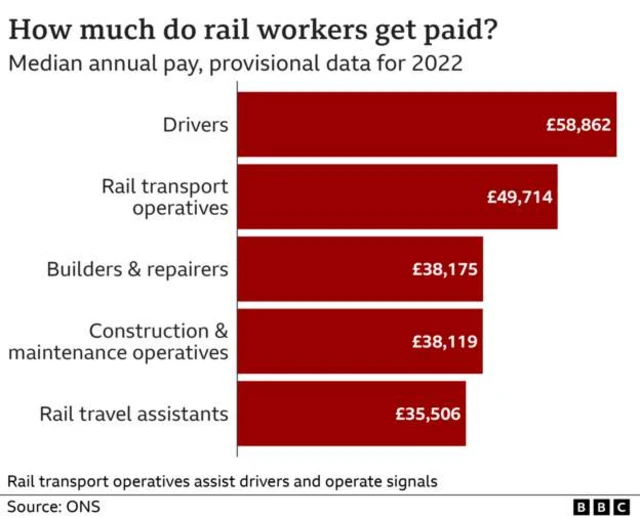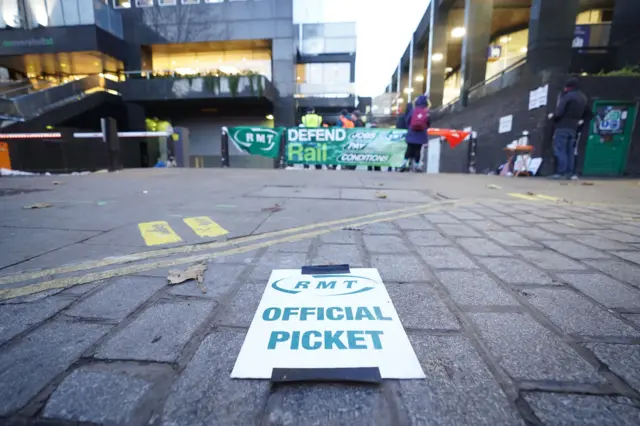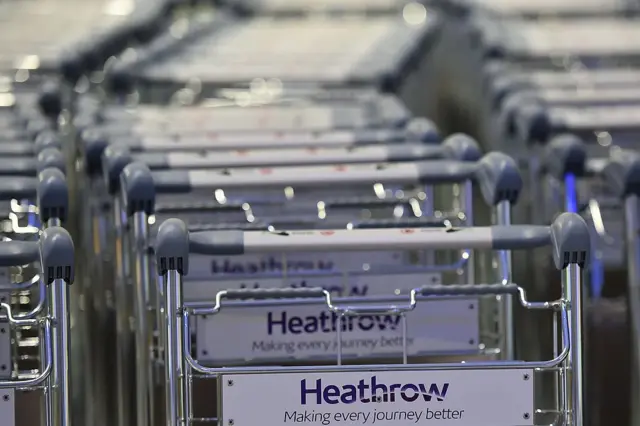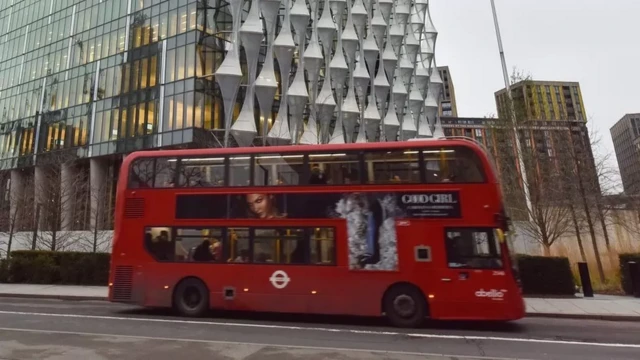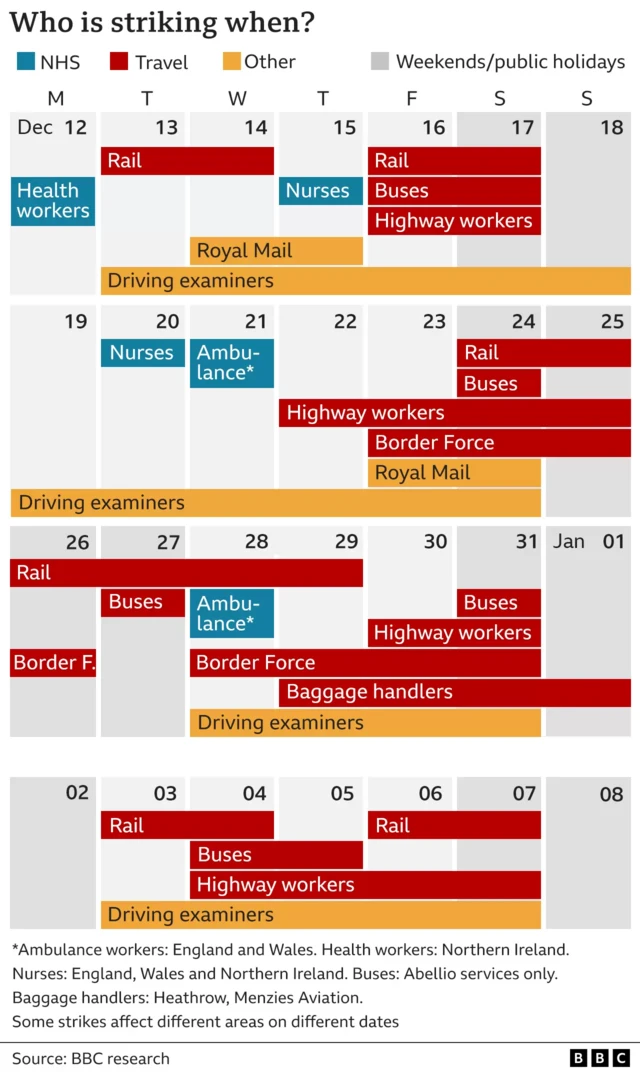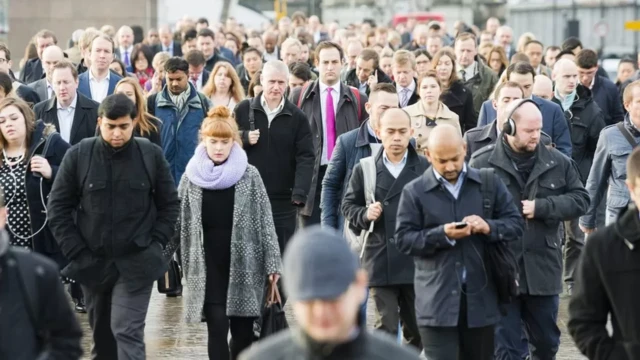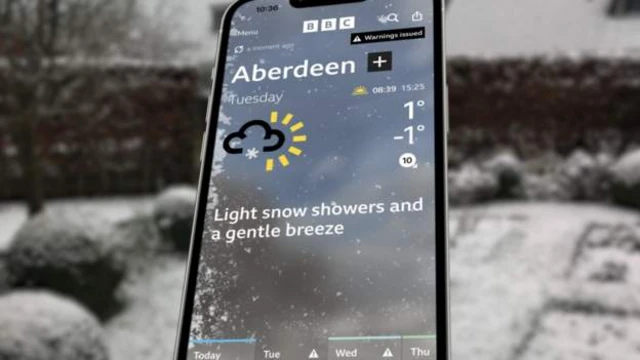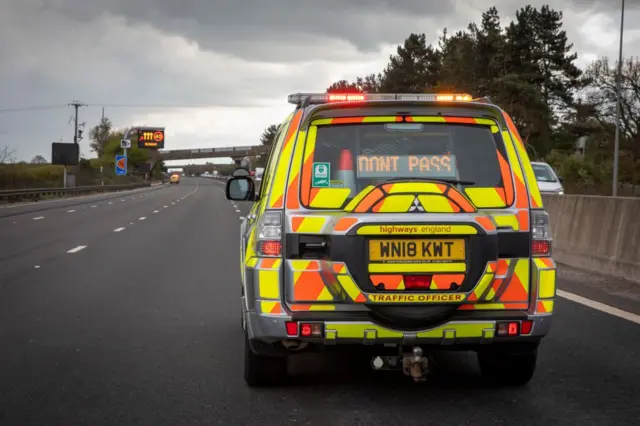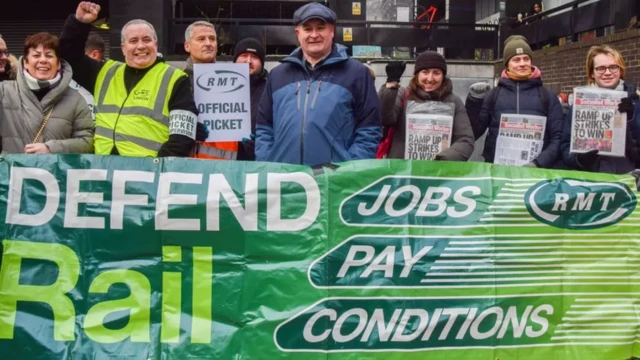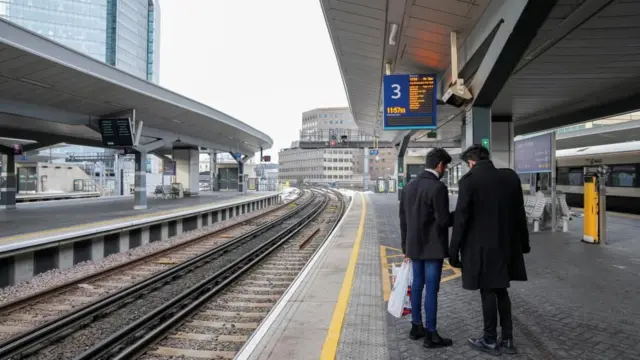Nurses' strikes caused 'significant impact' on NHSpublished at 07:42 GMT 16 December 2022
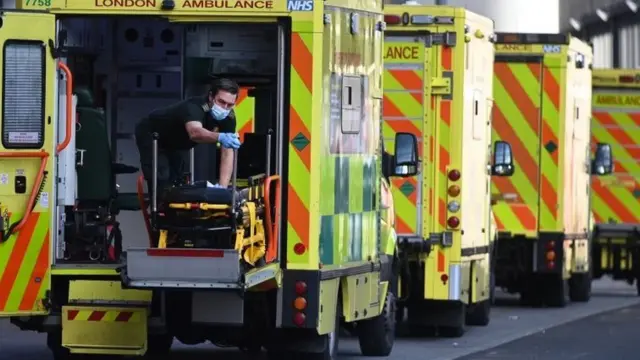 Image source, EPA
Image source, EPAYesterday's nurses' strikes led to some "real pressure points" in emergency departments around the country, according to Saffron Cordery, interim chief executive of NHS providers which represents trusts in England.
She says around 40-60% of routine operations were cancelled in places where the strikes were held, in order to "keep patients safe so there's available staff in emergency departments and other places they're needed".
"It's fair to say there's been a relatively significant impact. It was a very demanding day overall on the front line in the NHS," she tells BBC Radio 4's Today Programme.
Outpatient appointments held up better with lower levels of cancellations, but it was "overall a pretty mixed picture with widespread impact," she adds.
